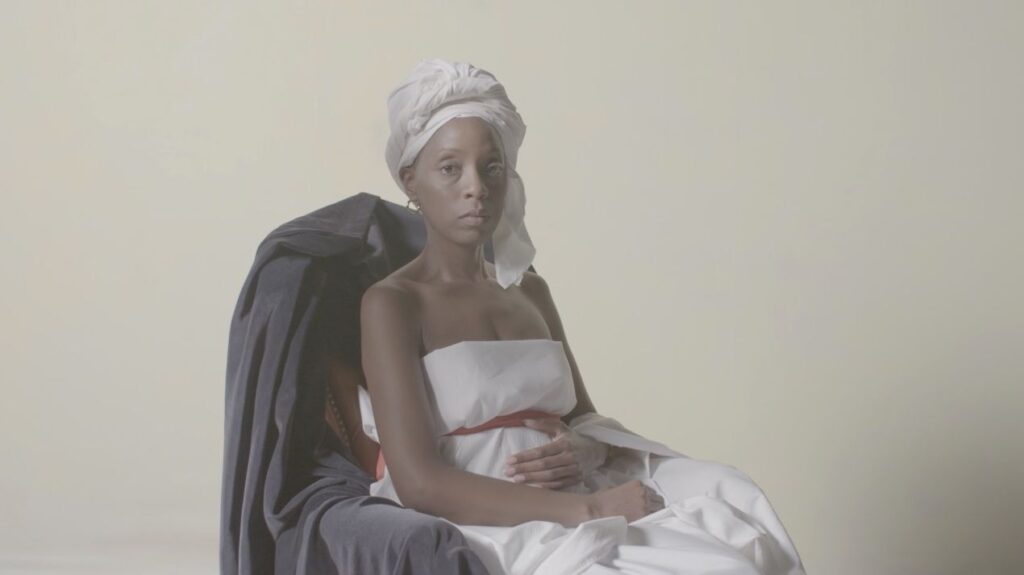A prism can be a lens, a way of seeing. In the figurative sense, it can be a tool that refracts and deconstructs ideas. In the literal sense, it breaks down white light into a rainbow. A prism is not inherently neutral. Neither is a camera. In the new documentary “Prism,” three women filmmakers — Rosine Mbakam, Eléonore Yameogo, and An van. Dienderen — explore bias and racism in filmmaking, from a creator’s gaze to lighting to makeup to the invention of cameras and film.
The project’s genesis came about when Dienderen (“Patrasche: A Dog of Flanders, Made in Japan”), who is white, kept receiving questions about on-screen color calibration. How have artists learned to light dark skin when the practice historically only used pale skin? Dienderen realized she couldn’t answer that question, so decided to have a conversation about it with Mbakam (“Delphine’s Prayers”) and Yameogo (“Paris mon paradis”), both of whom are Black filmmakers.
For the most part, Dienderen listens in “Prism,” while Mbakam and Yameogo present and debate their views on cinema’s racism, colorism, and bias. For Mbakam and Yameogo, this is a chance to reckon with the colonization of the screen and the mistreatment of Black voices and images; for Dienderen, it’s a chance to be an ally, to educate herself with the aim of employing anti-racist film techniques in her future work.
“Prism” is a fascinating, edifying doc, not least of all because it highlights the myriad ways filmmaking is prejudiced, specifically anti-Black. As recent conversations have made clear, hiring Black directors and actors doesn’t automatically equal thoughtful inclusion. Careful consideration also needs to go into the script, the cinematography, the makeup design, and everything else that makes a film a film.
For Mbakam, cinema is intentionally racist. She uses her time in “Prism” to examine how film has historically aided and abetted white supremacy and colonialism, and lifted up white perspectives while marginalizing Black ones. For Yameogo, cinema is unconsciously racist. Her segment focuses on how artists of color are trying to improve the system from within, updating lighting and makeup techniques for darker skin tones. However, Mbakam and Yameogo do agree that cinema was invented by and for white people — that has to be acknowledged if it is ever going to be a more inclusive place.
Like most complex conversations, “Prism” does not conclude with a tidy resolution — there is no “right” way to address and rectify racism in film. But that was never the goal. This documentary’s mission is to educate its audience on cinema’s past and present, how white supremacy and colonialism have influenced film and vice versa. Should we dismantle the current system, or try to do better with what we have? I’m not sure and neither is “Prism,” but asking questions is the first step to finding answers.
“Prism” is now playing at BAM in Brooklyn, as part of the film series Portraits and Prisms: The Films of Rosine Mbakam. It will expand to additional theaters in the coming weeks. Find screening info here.







